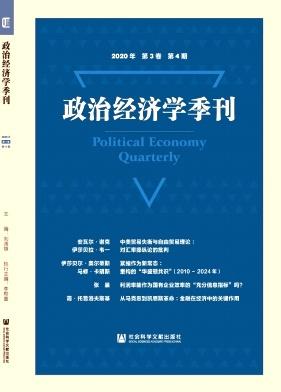Growth and Global Imbalances: The Role of Learning-by-Exporting
引用次数: 0
Abstract
Rapidly growing developing economies are characterized by heavy exportation and current account surpluses. Empirical studies suggest that "learning-by-exporting" may be quantitatively important in developing countries and behind some of this dramatic growth. This paper explores if learning-by-exporting helps to explain key macroeconomic behavior of fast growing developing countries. To accomplish this, I build a two country general equilibrium growth model in which a developing economy benefits from learning-by-exporting as it trades with a developed economy. As the benchmark, I consider a setup in which policies are restricted by the World Trade Organization (WTO) to non-trade related policies and compare the outcome to a model with "No-WTO restrictions". The optimal policies in the presence of WTO restrictions rationalize the observed current account surpluses of rapidly growing developing economies. However, if there were no WTO restrictions, developing countries would manipulate their terms of trade rather than their current account, which improves the welfare of both developing and developed countries. This highlights the fact that terms of trade manipulation can be "win-win" in the presence of learning-by-exporting. This paper also considers a "Coordinated Policy" problem to obtain the first-best outcome for the world. In this setup, the developing country's terms of trade deteriorate even further and it runs a greater current account deficit compared to the "No-WTO Restrictions" case.经济增长与全球失衡:出口学习的作用
快速增长的发展中经济体的特点是大量出口和经常帐户盈余。实证研究表明,“在出口中学习”在数量上可能对发展中国家具有重要意义,并在某些显著增长背后发挥了重要作用。本文探讨出口学习是否有助于解释快速增长的发展中国家的关键宏观经济行为。为了实现这一点,我建立了一个两国一般均衡增长模型,其中发展中经济体在与发达经济体进行贸易时受益于出口学习。作为基准,我考虑了一种设置,其中政策受到世界贸易组织(WTO)对非贸易相关政策的限制,并将其结果与“没有WTO限制”的模型进行比较。在存在世贸组织限制的情况下,最优政策是使快速增长的发展中经济体的经常账户盈余合理化。然而,如果没有世贸组织的限制,发展中国家将操纵其贸易条件,而不是操纵其经常账户,这将改善发展中国家和发达国家的福利。这凸显了这样一个事实,即在出口中学习的情况下,贸易条件操纵可以是“双赢”的。本文还考虑了一个“协调政策”问题,以获得对世界最优的结果。在这种情况下,发展中国家的贸易条件进一步恶化,与“无wto限制”的情况相比,它的经常账户赤字更大。
本文章由计算机程序翻译,如有差异,请以英文原文为准。
求助全文
约1分钟内获得全文
求助全文

 求助内容:
求助内容: 应助结果提醒方式:
应助结果提醒方式:


